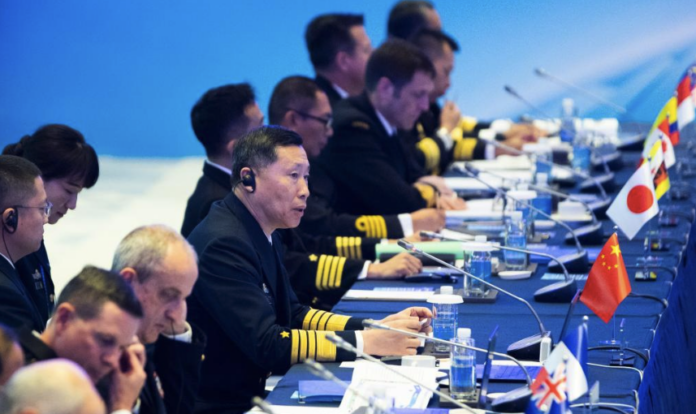The four-day and 19th Western Pacific Naval Symposium (WPNS) was held in the city of Qingdao in China’s Shandong province on April 21, 2024, with the participation of some 180 naval representatives from 29 countries; nevertheless, the symposium appeared to have limitations due to the profound distrust and mutual perceptions of military threats among some of the countries concerned.
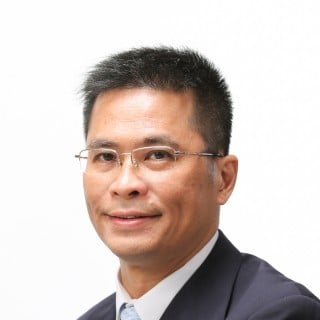
The WPNS was founded in 1988 and currently there are 23 member states and 7 observer states. The last forum was held in Japan’s Yokohama in 2022.
The 19th WPNS aimed at narrowing difference of opinions on maritime issues, establishing a mechanism of global maritime governance and attempting to resolve maritime issues and disputes among countries concerned through dialogue and friendly consultation. The event this time was kicked off by an opening speech from the vice chairman of the Chinese Central Military Commission, Zhang Youxia. Zhang said that the Chinese armed forces actively participated in the international cooperation of maritime security and that China would continue to play a positive role in international military collaboration.
He also remarked: “We should resolutely abandon the Cold War mentality, join hands to create peace and stability, bridge differences through dialogue and consultation, jointly discuss and establish rules for governance, and push maritime security governance to a new level with practical results (Global Times, April 22, 2024).” Zhang added that China would not make troubles and would not be afraid of dealing with troubles, because the Chinese armed forces would resolutely safeguard China’s national unity and interests.
The biennial meeting carried the theme of “Oceans with a Shared Future,” and it was held in China the second time after it had hosted the event in 2014. The naval delegates discussed the Global Security Initiative and maritime peace and order based on maritime security cooperation, the observance on international law, and the improvement of global maritime governance. It was reported that the symposium also discussed how countries would avoid the possibility of clashes of drones on the seas, while updating the rules and regulations governing maritime accidents. The rules and regulations on maritime accidents were approved by the symposium ten years ago and they were regarded as applicable by the ASEAN in 2016 to deal with any accident in the South China Seas.
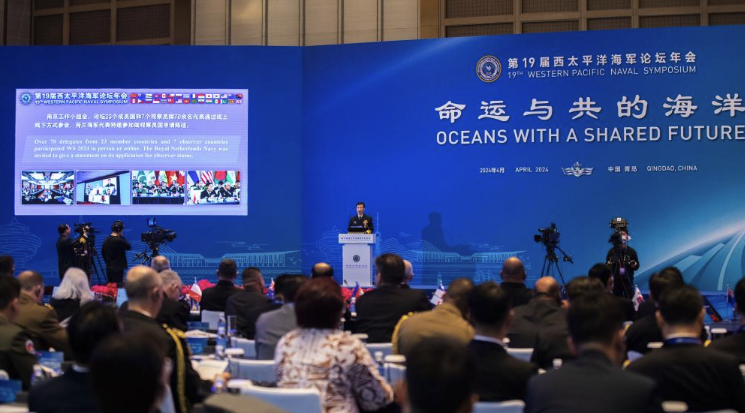
The US Pacific Fleet Commander Admiral Stephen Koehler attended the event, together with other delegates from Australia, France, India, Britain, Russia, Japan, South Korea, Cambodia, Chile, Indonesia and Pakistan. According to the Global Times, the media were eager to interview the US delegates, who however did not answer any questions. The Russian naval commander Alexander Moiseyev also attended the symposium, according to Taiwan’s United Daily News (April 22, 2024)
On the same day of the WPNS opening ceremony, the US and the Philippines conducted their annual Balikatan or “shoulder to shoulder” military exercise in the Philippines, projecting an image and a perception that they saw the Chinese naval moves in the Asia-Pacific region as a “threat.”
Furthermore, the delegates from the Philippines were absent in the Qingdao WPNS symposium – a political gesture of displeasure over the disputes with China about the sovereignty of islands and reefs in the South China Sea. The recent confrontation between the Chinese maritime vessels and the Philippine boats in the South China Sea, including the usage of water cannons by the Chinese side and the continuous moves from the Philippine side, has worsened the Sino-Philippines relations. As such, the absence of the Philippines in the WPNS symposium, together with the silence of US delegates in face of media questions, perhaps pointed to the two countries’ displeasure with the Chinese naval moves in the South China Sea. Perhaps fortunately, talks between the Chinese and US naval chiefs have resumed under the principle of military-to-military communications after the San Francisco meeting between President Xi Jinping and President Joe Biden.
The Chinese side saw the recent moves of Philippine boats near the disputed reefs in South China Sea as a deviation from a tacit consensus between the Chinese government and the Philippines administration under the former President Rodrigo Duterte, who was more pro-Beijing and less pro-US than the current President Romualdez Marcos Jr. In fact, the fluctuating political and diplomatic orientation of the Philippines government under varying presidents has become a pivotal factor shaping the military and naval relations between the Philippines and China. The challenge is how the two countries can and will manage their opinion differences and sovereignty disputes over the reefs in the South China Sea in a diplomatic, skillful, and peaceful manner.
General Zhang Youxia’s opening speech on April 22 appealed to the abandonment of the “Cold War mentality” – a remark directed at the US and its allies without naming the superpower. Zhang’s comment that China would take “firm countermeasures against unreasonable provocations” appeared to be a warning to any country making such moves in South China Sea.
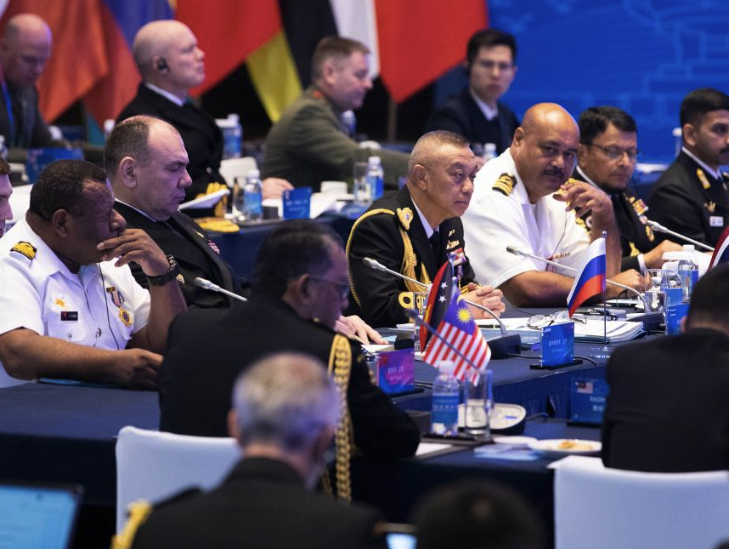
If the symposium represents military diplomacy of the countries involved, it does have limitations due to profound distrust and mutual perceptions of military threats among some of the countries.
This year’s WPNS coincided with the 75th anniversary of the founding of the People’s Liberation Army Navy, which was holding public commemorative events at a time when the symposium was held. The commemorative events were staged in major naval ports including Qingdao, Dalian, Yantai, Shanghai, Xiamen, Guangzhou, Zhanjiang, Haikou and Sanya. It has been anticipated that the Chinese naval fleet would perhaps become the world’s “largest” one by 2035 – a move that conformed to the plan of making the PLA to become “a world class” force by 2027, which would reach the 100 anniversaries of the founding of the PLA (United Daily News, April 22, 2024).”
About ten days after the symposium, US Secretary of Defense Lloyd Austin went to Oahu in Honolulu to meet his counterparts from Australia, Japan and the Philippines. He said that the talks would continue their “historical progress” on how to deepen defense and security ties among the US allies amid the perception of “the China threat.” Such a perception was articulated by Admiral John C. Aquilino, who was the head of the US Indo-Pacific Command and who told the Senate on March 21, 2024, that the Chinese military actions were “becoming more belligerent [and] their rhetoric is clearer (Air & Space Forces Magazine, March 21, 2024).” The new head of the Indo-Pacific Command, Sam Paparo, succeeded Aquilino on May 4 when Austin presided over the handover ceremony. Austin said that China “continues to engage in increasingly coercive behavior and we can see that across the Taiwan Strait, in the East and South China Seas, among the Pacific Island countries along the line of actual control with India and more (Hawaii News Now, May 4, 2024).” He even went so far as to say that China is “the only country with both the will and increasingly the capacity to dominate the Indo-Pacific and to reshape the global order to suit its autocratic vision (Hawaii News Now, May 4, 2024).” Undoubtedly, the Chinese side must disagree with his views as reported above.
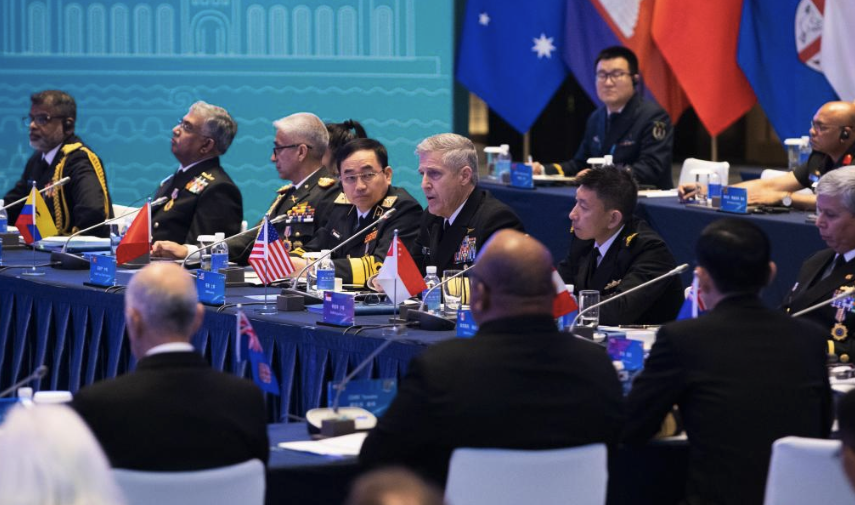
From an objective and analytical perspective, Austin’s remarks, together with Zhang’s comments in his opening speech of the WPNS, are a testimony to the profound distrust and mutual perceptions of military threats between the US and China respectively.
In conclusion, the WPNS represented the military diplomacy conducted by member countries involved, but it has severe limitations due to the profound distrust and mutual perceptions of military threats among some countries, including the US, China, the Philippines and many others. Having said that, the symposium at least symbolized the willingness among the countries concerned to sit down and share their views, hoping to resolve their maritime issues and perhaps disputes through a long but difficult process of dialogue and trust-building. Some of the issues that were discussed in the symposium, such as the updating of the rules and regulations on maritime accidents, are militarily and practically important, for they involve how naval vessels and aerial equipment like drones may avoid clashes and mutual disturbances – issues that are conducive to the avoidance of maritime accidents, the necessity of international cooperation, and the maintenance of maritime peace and security, thereby minimizing the possibilities of military misunderstandings and miscalculations.
*Sonny Shiu-Hing Lo is a political scientist, veteran commentator, and author of dozens of books and academic articles on Hong Kong, Macau, and Greater China





